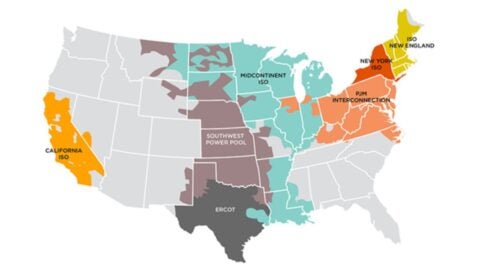Concerned Citizens Plea for Stronger CAFE Standards
 This post is by John Balbus, M.D., M.P.H., Chief Health Scientist at Environmental Defense Fund.
This post is by John Balbus, M.D., M.P.H., Chief Health Scientist at Environmental Defense Fund.
Yesterday, a quiet public hearing on a hot August day in Washington D.C. drew a surprisingly large crowd. The official reason for the hearing, conducted by the National Highway Transportation and Safety Administration (NHTSA), was to take comment on the Environmental Impact Statement (EIS) for revised Corporate Average Fuel Economy (CAFE) standards. A lawsuit forced NHTSA to draft an EIS that assessed global climate change impacts – including health – from improved fuel economy in the U.S. car and light truck fleet.
The 400-page document is technical, turgid, incomplete and misleading, and asserts that it is not possible to distinguish between the future health and climate impacts of a 41 mpg fuel economy versus the present 25 mpg. Needless to say, EDF does not agree with that conclusion or the methods used to come to it, but the comments at the hearing were far broader than just the EIS. Most striking was the lineup of citizens who called on NHTSA to take definitive action on climate change to help protect their future.
After a representative of the auto manufacturers told NHTSA that it didn’t really have to do an EIS, a third-generation automobile dealer from Maine spoke of the unmet consumer demand for high mileage cars, and the failure of U.S. auto manufacturers to perceive, predict and meet that demand – a strong counter to the official industry representative.
Next, a series of twenty-somethings – some in suits, some in shorts – proceeded to the podium. They each told a personal story that illustrated their concerns about climate change, and hopes for their future. One speaker recalled having "the little engine that could" read to her at bedtime, and exhorted NHTSA to strengthen the standards with the same kind of attitude.
The passion of the speakers, and their stories of having to choose between gas and food, made for a powerful, personal appeal for NHTSA to revise the EIS and the standards. Perhaps the strongest authority came from Rabbi Fred Dobb, who quoted Deuteronomy 30:19 to provide a moral context for NHTSA’s decision: "I have put before you life and death, blessing and curse. Choose life – if you and your offspring would live."
Dr. James Keck, a preventive medicine resident from Johns Hopkins doing a rotation here at EDF, delivered a statement on behalf of EDF. He pointed out that NHTSA failed to assess the impacts of CAFE standards in the proper context. Though required to consider the "cumulative impacts" of policy decisions, NHTSA did not consider how U.S. CAFE standards contribute to the global fight against dangerous climate change. (See this previous post to compare of fuel efficiency standards in other countries.)
So on this 90+ degree day in August, one can only hope that NHTSA staff truly feel the heat and will strengthen the CAFE standards to the more stringent level they should have been in the first place.











